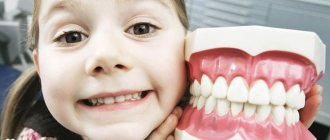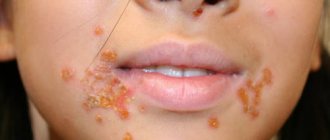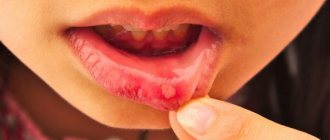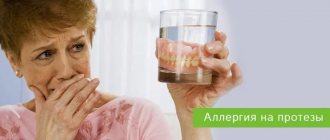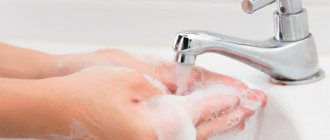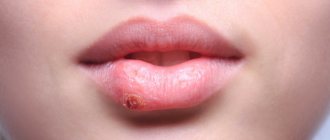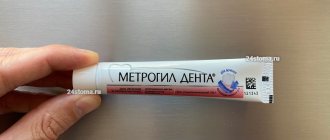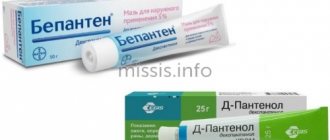Allergy to kiwi in a child
According to statistics, kiwi allergy in children is more common than in adults. In terms of symptoms, it resembles a reaction to pineapples and other fruits that contain large amounts of vitamin C. Moreover, in recent years, the number of people with allergies to kiwi has been increasing.
In this regard, parents of small children may be advised to delay introducing this product into the child’s diet. If you do decide to experiment, feed fruits that contain high amounts of vitamin C very carefully. If your baby has previously had an allergy to citrus fruits, it is better to postpone tasting exotic fruits.
When a child tries kiwi for the first time, you should start with a very small portion and monitor the condition. You should not eat this fruit every day. As a rule, an allergy to kiwi in children manifests itself almost instantly: you will immediately notice that a rash has appeared on the skin.
In some cases, allergens contained in the fruit cause an asthmatic reaction. The child may experience difficulty breathing. It contains a protein that is a powerful allergen. This leads to breathing problems.
Kiwi - description and properties
Thanks to its tangible range of beneficial properties, this exotic fruit is successfully used in cooking as sauces for meat dishes, for filling delicious baked goods, and is added to creams, ice cream, cocktails, puddings, etc. The fruit is included in the diet for weight loss, it is given to children, and is eaten with pleasure by those who like its interesting taste, reminiscent of lemon, strawberries and banana combined. You often hear that after eating kiwi, your tongue, lips and gums burn and tingle. Why is this happening?
READ ALSO: tongue burns and turns red: causes and elimination of discomfort
Allergy to kiwi in adults
The main diagnostic challenge is that symptoms of a kiwi allergy may not appear until two to three days after you eat the fruit or inhale its aroma. Because of this, people often do not understand what caused the allergy. Moreover, skin rashes and breathing problems can also begin as a result of the fact that a person simply held the fruit in his hands or smelled a cosmetic product with its extract.
You need to know that this food product can also cause serious consequences in case of intolerance to its components. In rare cases, it provokes anaphylactic shock and Quincke's edema. With such allergic reactions, it is necessary to urgently call an ambulance, because they are life-threatening.
Treatment of headaches after covid
Most patients do not require specific treatment, since the pain goes away on its own over time. Temporary pain relief with medication is sufficient. Complex therapy is prescribed when complications of coronavirus infection are detected. For example, if cephalgia is caused by a blood clot or worsened arterial hypertension. Self-medication is unacceptable, as life-threatening consequences may occur.
Groups of medications prescribed by a specialist:
- Non-steroidal anti-inflammatory drugs. Elimination of pain occurs by blocking the release of inflammatory mediators. Such medications should not be used for a long time due to their negative effects on the gastrointestinal tract, kidneys and other organs.
- Triptans are effective medications for migraines. If severe attacks do not improve with analgesics, the neurologist will prescribe triptans for temporary relief. These are prescription medications.
- Therapeutic blockades. An anesthetic substance is injected directly into the area of the nerve endings. The blockade helps with acute attacks of pain due to neuralgia or osteochondrosis.
Surgical interventions are carried out only in case of severe consequences of coronavirus, when conservative treatment is ineffective.
Non-drug treatment
To get rid of pain and other neurological disorders during the recovery period, it is recommended to use the following types of therapy:
- Physiotherapy. Magnetic, electrical, infrared or other effects are used to improve blood circulation and normalize metabolism in tissues.
- Manual therapy. Therapeutic massage in the back of the head or neck helps with headaches caused by osteochondrosis, neuralgia or muscle tension.
- Physiotherapy. Gymnastics and cardio exercises in the fresh air will speed up recovery after a coronavirus infection.
It is recommended to combine the listed treatment methods with a drug therapy regimen prescribed by a specialist.
Allergy to kiwi: Causes
The fruit contains at least 12 powerful allergens. They are even transmitted from mother to child through breast milk. Therefore, nursing mothers (if the child has allergies) are not recommended to use this product.
Some allergens lose their properties when cooked, but others are resistant to elevated temperatures. Therefore, even after heat treatment, they can cause undesirable reactions.
Also, the exotic fruit is rich in various enzymes that cause allergies.
Kiwi allergy: Symptoms
Symptoms of an allergy to kiwi in a child are immediately noticeable. In children, allergies immediately make themselves known in the form of a rash and red spots on the skin.
You can identify a whole group of symptoms by which you can identify such a food allergy:
- the skin of the face is red;
- noticeable rashes appeared on the body;
- stuffy nose;
- started coughing, sore throat;
- lips and face are swollen;
- in serious cases, the tongue and larynx swell;
- the mucous membranes are red;
- the skin began to itch;
- an allergy to kiwi is accompanied by vomiting and problems with stool (constipation, diarrhea);
- shortness of breath and frequent sneezing appeared;
- head is spinning;
- abdominal pain appeared;
- blood pressure dropped sharply.
Causes of headaches after coronavirus
Doctors constantly encounter this symptom among post-Covid patients. The exact causes of cephalalgia due to infection have not been determined. The main theory is damage to the blood vessels and sinuses of the meninges. This anatomical area contains pain receptors that respond to compression and other types of impact. Coronavirus affects vascular endothelial cells and disrupts the blood supply to organs.
Other possible reasons:
- accumulation of viral toxins in the body;
- consequence of the inflammatory process;
- disruption of oxygen supply to the brain due to damage to lung tissue;
- manifestation of general malaise after recovery.
Exacerbation of chronic diseases after a viral infection is a common complication. If a person has already suffered from a tension headache, migraine, or other type of cephalalgia, the likelihood of the symptom returning after recovery increases. The cause is not always associated with viral brain damage.
Risk factors
Not all people get headaches. There are different types of predisposition to the occurrence of cephalalgia. This may be an individual characteristic of the body or the specificity of the impact of coronavirus on the nervous system.
Main risk factors:
- high or low blood pressure;
- coagulation disorders, thrombus formation;
- chronic circulatory disorders in the brain;
- arrhythmia and other heart diseases;
- degenerative pathologies of the spine;
- respiratory impairment after coronavirus;
- diabetes;
- advanced age;
- bronchial asthma.
Cephalgia persists after COVID-19 in approximately 12% of patients. The pain often does not go away for several weeks or months.
What to do if you are allergic to kiwi
As soon as you notice signs of an allergy, go to the doctor as soon as possible to consult and conduct the necessary examination. If symptoms are very severe, call an ambulance.
If you notice any of these allergy symptoms, do not eat this fruit. Also limit the consumption of all products (including cosmetics) that contain this fruit. Study the ingredients of sweets, ice cream, yoghurts and cosmetics in the store.
If you are being treated for a kiwi allergy, temporarily eliminate citrus fruits, papaya and pineapples. They may cause symptoms to worsen. In many cases, this practice is observed: if a patient is allergic to a fruit with a high content of vitamin C, then other fruits with vitamin C can cause a similar reaction. The difference lies only in the severity of the symptoms.
Kiwi allergy treatment
It is advisable that your doctor prescribe allergy treatment after diagnosis. Most often, patients are prescribed antihistamines. They help reduce itching, redness, swelling and the intensity of the rash soon after administration. Also, such drugs relieve a person from digestive problems caused by allergies.
To relieve local reactions, ointments and creams are used.
If symptoms are severe, help is required immediately. Doctors often inject hormones to quickly relieve allergy symptoms and prevent complications.
It is important to know that it is advisable to use antihistamines only according to the regimen prescribed by a doctor, as well as in emergency cases. Long-term use of such medications can lead to liver problems.
Diagnostic methods
The examination is carried out by neurologists. The doctor clarifies complaints and collects medical history to identify risk factors. A neurological examination is performed to exclude organic brain damage. If necessary, a consultation with a cardiologist or a doctor of another profile is scheduled.
Diagnostic procedures:
- Visualization of the central nervous system organs. The neurologist prescribes radiography, computed tomography or magnetic resonance imaging. If vascular examination and assessment of blood supply is required, contrast-enhanced tomography is performed. Imaging results help assess the nature and extent of brain tissue damage.
- Electroencephalography is a study of the bioelectrical activity of neurons. The method is suitable for identifying functional disorders. The EEG results complement the information obtained using tomography.
- Echoencephalography is a visual examination in real time. The neurologist excludes swelling, circulatory disorders of certain brain structures and other pathologies.
- Lumbar puncture is the collection of cerebrospinal fluid using a puncture. Laboratory testing of cerebrospinal fluid is required to detect infectious processes in the central nervous system.
- Laboratory diagnostics: general and biochemical blood tests and other methods taking into account indications.
The neurologist selects a limited number of studies based on the symptoms detected.
Preventing kiwi allergy: how to prevent recurrence
If you ever have signs of an allergy to kiwi, it is best to exclude this fruit from your diet. Repeated exposure to the allergen will cause symptoms to recur, even after successful treatment.
Antihistamines can reduce the body's reaction to allergens, but do not eliminate its cause. Therefore, the main method of prevention is to avoid exotic fruit and all products that contain it. This primarily applies to cosmetics with fruit extracts: washing gels, oils, creams, shampoos, balms, etc. Such cosmetic preparations can cause skin rashes and other manifestations. It is best to use special neutral cosmetics if you are prone to allergies.
What to do to get rid of unpleasant sensations?
Why is everything forbidden so attractive? It would seem that the tongue is stinging, an unpleasant sensation appears in the mouth from kiwi - why eat it then (we recommend reading: tongue stinging in the mouth: causes and treatment)? No, I still want to. Again the hand reaches out for this small furry fruit, and again it all starts again - it plucks. How can you get rid of these feelings? Let's consider this issue in more detail.
READ ALSO: why lips can burn - causes and solutionsImportant! You should never brush your teeth with toothpaste if you have a reaction to exotic fruits. Under the influence of acid, which is found in large quantities in this exotic fruit, tooth enamel softens. The impact of a toothbrush on such enamel can completely destroy it and lead to dental caries.
Before eating fruit
What can you do to prevent eating an exotic fruit from causing a tingling sensation in your mouth? Before use, peel the fruit and rinse thoroughly under running water. This technique allows you to calmly enjoy the taste of your favorite fruit, and there will be no talk of any pinching in your mouth.
You can also prepare ahead of time for your favorite meal. It is enough to peel the fruit and put it in this form in the refrigerator overnight. The acid will disappear overnight, and during breakfast you won’t have to remember that it stings.
After meal
To alleviate your condition as a result of eating another piece of fruit, some recommend rinsing your mouth with warm water until it goes away. A mug of black tea at room temperature or a glass of milk shows a good effect. The human body is individual. While milk helps some, simply rinsing your mouth with water may help others.
Hypoallergenic cosmetics La-Cri
The La Cree skin care series is ideal for allergy sufferers. This cosmetics is designed specifically for people with sensitive skin, although it is suitable for everyone without exception. Each product is created on the basis of natural ingredients that nourish and restore the skin. These are extracts of medicinal herbs, natural oils and panthenol.
All active substances are combined with each other in such a way as to achieve a therapeutic effect. The composition does not contain parabens, hormones and harmful chemicals. Therefore, La-Cri cosmetics can be used by pregnant women and children from the first days of life.
Try La Cree Sensitive Skin Cream. It is absolutely safe for the body, but at the same time effectively relieves allergic itching, irritation, rashes and redness. The cream is non-addictive due to its non-hormonal composition, and natural ingredients quickly reduce inflammation. This product also helps with insect bites, and can also be used for daily skin care.
Experts' opinion
The conducted clinical study proves the high efficiency, safety and tolerability of products for daily skin care of children with mild and moderate forms of atopic dermatitis and during remission, accompanied by a decrease in the quality of life of patients. As a result of therapy, a decrease in the activity of the inflammatory process, a decrease in dryness, itching and flaking was noted.
The properties of the products are confirmed by a clinical study conducted jointly with the St. Petersburg Union of Pediatricians of Russia.
It has been proven that the cream for sensitive skin reduces itching and irritation, relieves redness, moisturizes and gently cares for the skin.
Sources:
- B.A. Shamov, I.G. Safiullina, A.B. Beshimova, T.B. Shamov, Differential diagnosis of atopic dermatitis, Journal of Practical Medicine, 2011
- Fokina R.A., Atopic dermatitis: stages of development of classification forms, Siberian Medical Journal, 2007
- A.N. Pampura, A.A. Chuslyaeva, Modern approaches to the treatment of atopic dermatitis in children https:/cyberleninka.ru/article/v/sovremennye-podhody-k-terapii-atopicheskogo-dermatita-u-detey
